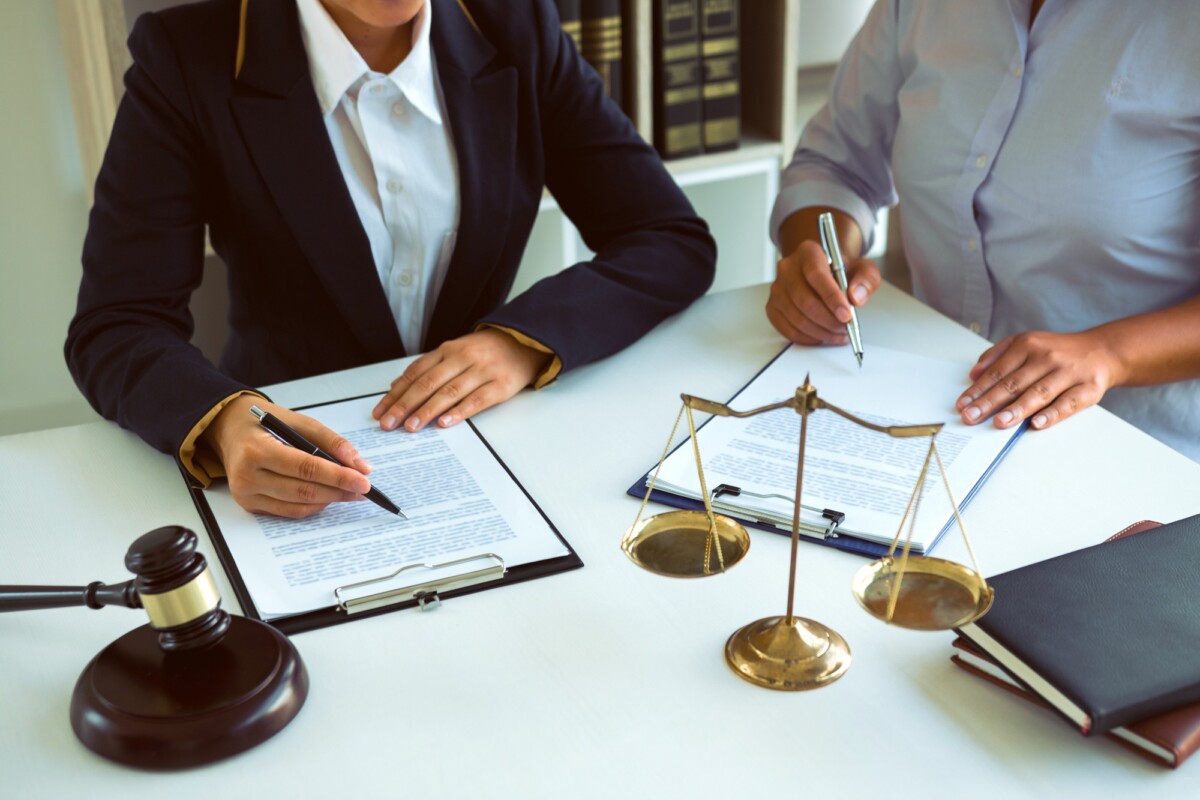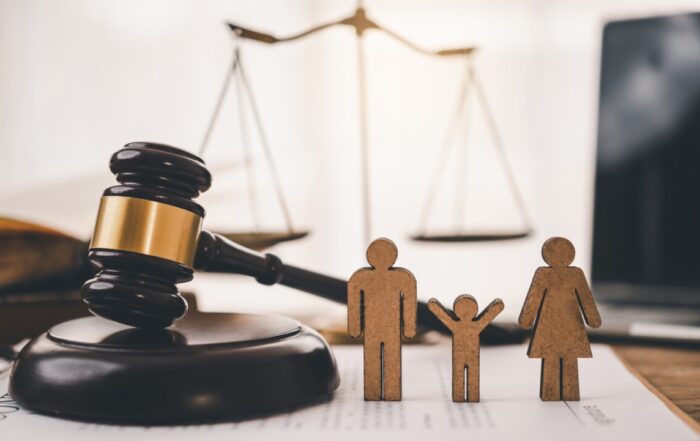What Happens During a Court Trial? A Complete Guide
Ready to resolve your legal concerns? Get professional help now with personalized support, Or Call 833-349-4659 for immediate assistance.
Understanding What Is A Trial In Court crucial for anyone involved in legal proceedings. A trial is the formal examination of evidence before a judge and often a jury, aimed at resolving disputes and delivering justice. Knowing what to expect can alleviate anxiety and help you prepare effectively.
Key Phases of a Court Trial
- Jury Selection: If applicable, jurors are chosen to hear the case. This process ensures an impartial jury.
- Opening Statements: Both sides present their case outlines, setting the stage for the evidence to come.
- Presentation of Evidence: Witnesses are called, and evidence is presented to support each side’s claims.
- Closing Arguments: Each party summarizes their case, reinforcing key points for the jury or judge.
- Verdict: The jury or judge delivers a decision based on the evidence presented.
Finding Case Details
If you’re wondering how to find case details, online databases and court websites are excellent resources. For specific legal matters, consulting a California divorce attorney can provide tailored insights and guidance. They can help you navigate the complexities of your case and ensure you understand the trial process.
The Key Players in a Court Trial: Who’s Who?
Understanding what happens during a court trial is crucial for anyone involved in legal proceedings. A trial is where evidence is presented, and a verdict is reached. Knowing the key players can help demystify the process and make it less intimidating for those unfamiliar with the legal system.
The Judge
The judge oversees the trial, ensuring that the law is followed. They make rulings on legal issues and guide the proceedings. Their impartiality is vital for a fair trial.
The Jury
In many cases, a jury of peers listens to the evidence and decides the outcome. They are tasked with evaluating the facts presented and delivering a verdict based on their findings.
The Attorneys
Attorneys represent the parties involved. A California divorce attorney, for example, specializes in family law and advocates for their client’s interests during the trial. They present evidence, question witnesses, and make legal arguments.
What Happens During Jury Selection?
Understanding what happens during a court trial is crucial for anyone involved in the legal process. One of the first steps in a trial is jury selection, which plays a vital role in ensuring a fair trial. This process helps determine who will hear the case and make a decision based on the evidence presented.
What Is Jury Selection?
Jury selection is the process of choosing jurors from a pool of potential candidates. This is essential because jurors must be impartial and capable of evaluating the case fairly. Attorneys for both sides have the opportunity to question potential jurors to assess their suitability.
The Process of Jury Selection
- Voir Dire: This is the questioning phase where attorneys ask jurors about their backgrounds and beliefs.
- Challenges: Each side can challenge certain jurors, either for cause (specific reasons) or through peremptory challenges (without giving a reason).
- Final Selection: Once the jury is selected, they will be sworn in and are ready to hear the case.
Understanding how to find case details can also be beneficial during this phase, especially if you’re working with a California divorce attorney who can guide you through the complexities of the legal system.
Opening Statements: Setting the Stage for Justice
Understanding what happens during a court trial is crucial for anyone involved in legal proceedings. The trial process can be complex, but it serves as a vital mechanism for delivering justice. One of the first steps in this process is the opening statements, where each party presents their case’s framework to the judge and jury.
During opening statements, attorneys outline the evidence and arguments they will present. This is not the time for detailed evidence; instead, it’s about painting a picture of the case. For those wondering, what is a trial in court, this phase is essential as it sets expectations for the proceedings ahead.
Key Elements of Opening Statements
- Purpose: To provide a roadmap of the case.
- Structure: Each attorney gets a chance to speak, usually lasting 15-30 minutes.
- Impact: A compelling opening can sway the jury’s perception early on.
If you need to know how to find case details, reviewing opening statements can give you insight into the case’s direction. For those navigating family law, consulting a California divorce attorney can help clarify what to expect during these critical moments.
The Presentation of Evidence: How Is It Done?
Understanding what happens during a court trial is crucial for anyone involved in legal proceedings. The trial process is where evidence is presented, arguments are made, and ultimately, a verdict is reached. Knowing how this works can help you navigate the complexities of the legal system, whether you’re a plaintiff, defendant, or simply curious about what a trial in court entails.
Types of Evidence
During a trial, various types of evidence can be presented, including:
- Witness Testimonies: Individuals provide firsthand accounts relevant to the case.
- Documents: Contracts, emails, and other written materials can support claims.
- Physical Evidence: Items related to the case, like photographs or objects, may be introduced.
The Process of Presenting Evidence
The presentation of evidence follows a structured process:
- Opening Statements: Each side outlines their case and what they intend to prove.
- Direct Examination: Attorneys call witnesses to provide evidence supporting their claims.
- Cross-Examination: The opposing side questions witnesses to challenge their credibility.
- Closing Arguments: Each side summarizes their case and the evidence presented, aiming to persuade the jury or judge.
If you need to find case details, consulting a California divorce attorney can provide valuable insights into how evidence is handled in family law cases.
Witness Testimonies: The Heart of the Trial Process
Witness testimonies are crucial in understanding what happens during a court trial. They provide firsthand accounts that can sway the jury’s perception and ultimately influence the verdict. Each testimony adds a layer of complexity to the case, making it essential for both sides to present their witnesses effectively.
The Role of Witnesses
Witnesses can be categorized into two main types:
- Fact witnesses: They provide direct evidence based on their observations.
- Expert witnesses: They offer specialized knowledge to help the jury understand complex issues. Both types are vital in establishing the facts of the case and supporting legal arguments.
Preparing for Testimony
To ensure effective witness testimonies, attorneys often engage in thorough preparation. This includes:
- Pre-trial interviews: Understanding the witness’s perspective.
- Mock trials: Practicing the delivery of testimonies.
- Reviewing case details: Knowing how to find case details is essential for both witnesses and attorneys.
In California, a divorce attorney may prepare witnesses to discuss relevant aspects of the case, ensuring clarity and confidence during their testimony.
Ready to resolve your legal concerns? Get professional help now with personalized support, Or Call 833-349-4659 for immediate assistance.
What Are Closing Arguments and Their Importance?
Understanding what happens during a court trial is crucial for anyone involved in legal proceedings. One of the final stages of a trial is the closing arguments, where each party summarizes their case and highlights key evidence. This phase is vital as it can significantly influence the jury’s decision.
What Are Closing Arguments?
Closing arguments are the last opportunity for both the prosecution and defense to present their perspectives. They aim to reinforce the arguments made during the trial and clarify any misunderstandings. It’s a chance to persuade the jury by emphasizing the most compelling evidence and testimony.
Importance of Closing Arguments
- Summarization: They condense the trial’s key points, making it easier for the jury to recall important details.
- Persuasion: Effective closing arguments can sway the jury’s opinion, potentially altering the outcome of the case.
- Clarification: They address any ambiguities that may have arisen during the trial, ensuring the jury understands the case’s nuances.
For those seeking to understand the legal process better, knowing how to find case details can be beneficial, especially when working with a California divorce attorney.
Read Also: How Can You Look Up Case Details Online? A Complete Guide
How Does the Jury Deliberation Process Work?
Understanding what happens during a court trial is crucial for anyone involved in the legal process. One of the most significant phases is the jury deliberation, where jurors discuss the evidence presented and work towards a verdict. This process is vital in ensuring that justice is served based on the facts of the case.
The Jury’s Role in Deliberation
During deliberation, jurors must evaluate the evidence impartially. They discuss their perspectives, weigh the credibility of witnesses, and consider the legal standards set by the judge. The goal is to reach a unanimous decision, which is essential in criminal cases, while civil cases may allow for a majority verdict.
Factors Influencing Deliberation
Several factors can influence the jury’s decision-making process:
- Evidence Quality: The strength and clarity of the evidence presented.
- Juror Bias: Personal beliefs that may affect judgment.
- Legal Instructions: Guidelines provided by the judge that jurors must follow.
Understanding how to find case details can also help parties involved in a trial, especially when consulting a California divorce attorney for family law matters.
The Verdict: What Happens Next?
Understanding what happens during a court trial is crucial for anyone involved in legal proceedings. The trial process can be complex, but knowing the steps can help demystify the experience. After all, the outcome can significantly impact your life, especially in cases like divorce or criminal charges.
Once the jury or judge reaches a decision, the verdict is announced. This moment is pivotal, as it determines the outcome of the case. If you’re wondering, ‘What is a trial in court?’ it’s essential to recognize that this verdict is the culmination of all presented evidence and arguments.
Post-Verdict Steps
- Sentencing: If the verdict is guilty, the next step is sentencing, where penalties are decided.
- Appeals: If either party believes there was an error, they can file an appeal.
- Case Details: To find more about your case, consider how to find case details through court records or legal counsel, such as a California divorce attorney, who can guide you through the next steps.
How FormsByLawyers Can Help You Navigate the Court Trial Process
Understanding what happens during a court trial is crucial for anyone involved in legal proceedings. A trial is where evidence is presented, and a judge or jury makes a decision based on that evidence. Knowing the trial process can alleviate anxiety and help you prepare effectively.
Key Steps in a Court Trial
- Jury Selection: If applicable, jurors are chosen to hear the case.
- Opening Statements: Both sides present their case outlines.
- Presentation of Evidence: Witnesses testify, and evidence is submitted.
- Closing Arguments: Each side summarizes their case before deliberation.
- Verdict: The judge or jury delivers the final decision.
If you’re wondering how to find case details, FormsByLawyers offers resources to help you access public records and understand the documentation involved. Additionally, if you’re facing a divorce, consulting a California divorce attorney can provide you with tailored guidance throughout the trial process, ensuring your rights are protected.
Don’t let legal complexities hold you back. Start your free consultation here or call 833-349-4659 now.
You can also visit LegalCaseReview to find the best Lawyer.
FAQs
-
What is a trial in court?
A trial is a formal legal process where a judge or jury examines evidence, hears arguments from both sides, and makes a decision based on the law. -
What are the different types of trials?
There are criminal trials, civil trials, and administrative trials. Criminal trials determine guilt or innocence, civil trials settle disputes between parties, and administrative trials review government decisions. -
What is the difference between a jury trial and a bench trial?
In a jury trial, a group of citizens (jury) decides the case based on the evidence. In a bench trial, a judge alone makes the decision without a jury. -
How long does a trial typically last?
The length of a trial varies based on complexity. Some trials last a few hours or days, while high-profile or complex cases can take weeks or even months. -
Who are the key participants in a trial?
A trial typically involves a judge, attorneys (prosecution and defense in criminal cases, plaintiff and defendant in civil cases), witnesses, a jury (if applicable), and court staff.





